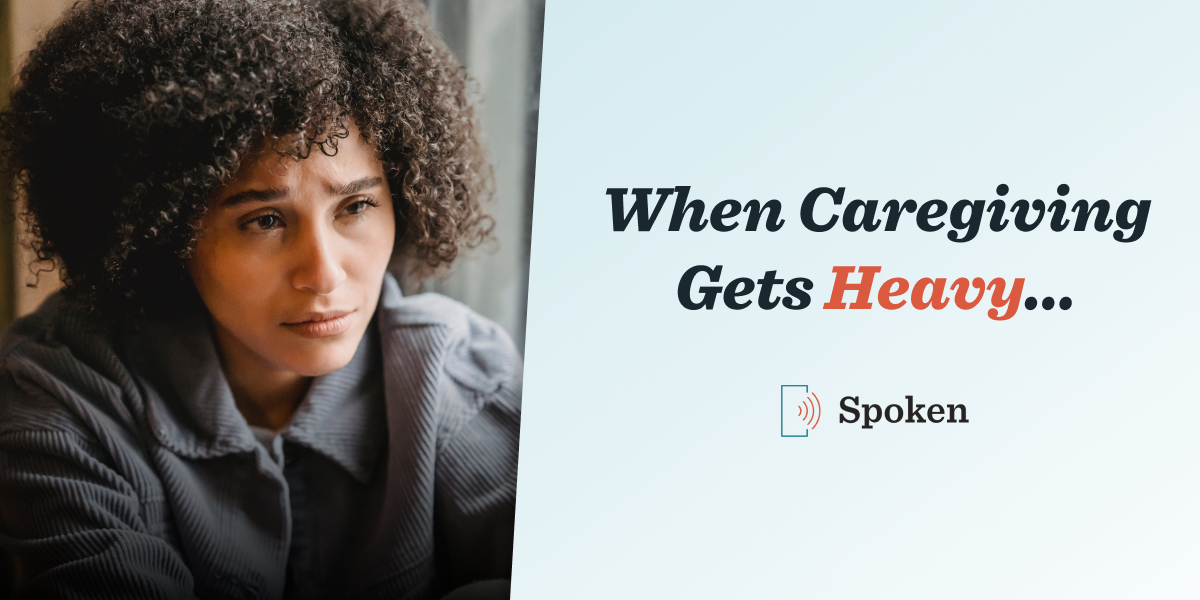When Caregiving Gets Heavy

November is National Family Caregivers Month, a time for honoring the unsung heroes who provide day-in, day-out care for their loved ones. This annual observance serves as a reminder that being a caregiver is a difficult role to be handed. While the act of caring for someone is frequently driven by love and a sense of duty, it is also fraught with emotional challenges, including stress, fatigue, and guilt.
It’s Okay to Not Be Okay
One of the most challenging aspects of caregiving is the emotional burden it carries. This weight often manifests as stress, fatigue, anxiety, irritability, or sadness. Unfortunately, these feelings tend to be amplified by the guilt that often comes with them—guilt for having what you perceive as selfish thoughts when it’s your loved one who is suffering. Perhaps you’re feeling overwhelmed, craving time to yourself, or lamenting missed social events and unrealized personal goals. These thoughts aren’t abnormal; a recent study from AARP revealed that half of caregivers feel emotional stress. Four in ten say they rarely or never feel relaxed. All of that is to say that your feelings are valid and you shouldn’t feel guilty over them. No matter how much you love the person you’re caring for, that doesn’t make you immune to human emotions. Frustration, irritation, and exhaustion are not indicators that you’re unfit for caregiving or selfish; they’re indicators that you’re human, with needs and limitations like everyone else. Addressing these is the only way to avoid caretaker burnout and ensure that you are capable of giving the person you love the best care possible.
Think of it this way: if you’re on a plane that’s losing pressure, you’re advised to put on your own oxygen mask before helping others. The same principle applies to caregiving. Taking care of yourself is not selfish; it’s necessary for you to be in the best condition to provide the care that your loved one needs. Plus, when guilt looms large, it becomes a debilitating cycle. Feeling guilty for being stressed just makes you more stressed. Acknowledging that it’s okay to have these feelings is the first step to breaking this cycle. Only then can you start addressing the issues that make caregiving so challenging for you.
Practical Steps to Take
Feeling better starts with taking concrete steps to address your emotional health:
- Open Up: Speak to someone you trust about your feelings. Sometimes, venting can be therapeutic and give you a new perspective. Support groups, both online and in person, can also offer invaluable emotional and practical support.
- Set Boundaries: Know your limits and articulate them to those around you, including other family members and healthcare providers. Setting boundaries creates a space where you can breathe.
- Seek Professional Help: Don’t hesitate to consult professionals for both your physical and emotional well-being. Therapists can help you navigate through the complex emotions you’re experiencing, providing coping strategies tailored for you.
- Take Time Off: Make use of respite care services or ask a family member or friend to take over for a little while. Use this time to recharge—physically, emotionally, and mentally. This is an important step to avoid caretaker fatigue.
- Perform Daily Self-Care: Incorporate exercise or mindfulness techniques into your routine to help balance the emotional demands of caregiving.
This National Family Caregivers Month, let’s shift the narrative. As caregivers, you deserve to be cared for too. Your emotional struggles don’t make you any less competent; they make you human. And acknowledging this humanity, with all its flaws and emotions, is the first step towards being the best caregiver you can be.
About Spoken
Spoken is an app that helps people with aphasia, nonverbal autism, and other speech and language disorders.
